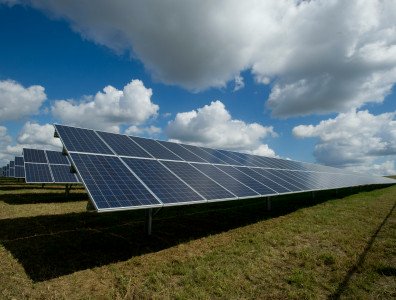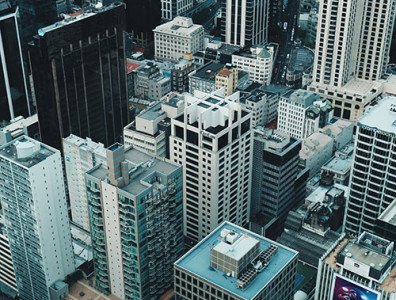Animal magnetism: Wellington Zoo takes tiger by the tail
Being an environmentally conscious organisation, the world-leading Te Nukuao Wellington Zoo has a board fully attuned to climate change.
By supporting management and “walking the talk”, it has resulted in the zoo becoming the world’s first to achieve net carbon-zero certification and is now leading the way in digital sustainability.
“We have sustainability reporting and conservation experts on our board, but the whole board is engaged with climate action in their personal or professional lives,” says CEO Karen Fifield MInstD.
“We have just started discussing climate change in detail, but it has been part of our risk matrix for a number of years. However, decisions such as which animals are suited to live in Wellington in the future, our capital development programming, and how we will ensure the health and safety of our people are high on everyone’s agenda.
“The conversations at executive and board level are changing and climate change is becoming more a topic the board is engaged with.”
The zoo, which boasts more than 80 species and 500 animals, has been a member of the Sustainable Business Network and the Sustainable Business Council, and “the network we have because of that is extensive”, says Fifield. “As carbon reduction becomes more and more mainstream in business, we see many organisations ask us about our approach or are happy to work with us in some way.”
In its quest for digital sustainability – the contribution of a company’s digital assets to sustainability across social, environmental and economic outcomes – the zoo has reduced website CO2 emissions by nearly 25 per cent. That is the same amount of carbon as nearly 4,000km of driving.
Digitial technologies account for eight to 10 per cent of global energy consumption and are responsible for two to four per cent of greenhouse gas emissions. Any interaction with a website requires energy to send, process and store data.
Fifield says the zoo has been able to reduce emissions without impacting user experience. The zoo has been working with the Wellington office of San Franciso-based digital design company AKQA, which introduced it to the concept of digital sustainability – “we hadn’t heard or thought of it before”, says Fifield.
“Basically, it was about learning how big the footprint of the internet is, and how we could manage our website to reduce the approximate emissions. We wanted to ensure we didn’t lose any functionality, or the great imagery of animals we have on the site.
We have made an approximate 23 per cent carbon emissions saving, and customers and visitors to the website would be none the wiser. It has been an amazing result.”
“Our strategies must reflect both risk and opportunity. For example, snow leopards suit our weather and are such a key species to engage about climate action with our community – more than 13,000 visitors have pledged to take climate action since we opened the snow leopards habitat in April 2023.”
The board supports the management team to undertake initiatives, such as looking at digital sustainability, and allows the team to try new approaches to fully understand what being a sustainable organisation looks like across its operations.
Fifield says they are perfectly placed to engage the community with climate action behaviours – individual and systemic.
“Climate change affects us all – humans, animals and ecosystems. As humans, we have enormous power to make the change needed. As chief executive, I have seen that climate change has become much more intrinsic to how the organisation operates and responds.
“Where sustainability and conservation were once the key issues, I now believe climate action is the all-encompassing issue we must address. This is because everywhere and every living thing is affected by climate change.
“Climate action is one of the six UN Sustainable Development Goals we are focused on and strategically this action is woven into our visitor messaging, the conservation partners we have and the reduction of carbon we produce.”
While the zoo, which covers 13 hectares in Newtown and welcomed more than 260,000 visitors in 2023, has received many accolades for its mahi, Fifield says they know the conversation will become even more granular into the future.
“Our strategies must reflect both risk and opportunity. For example, snow leopards suit our weather and are such a key species to engage about climate action with our community – more than 13,000 visitors have pledged to take climate action since we opened the snow leopards habitat in April 2023.
“Climate change is something we can choose to act on. How organisations operate is within their control and any actions make a difference. Advocate for climate action whether you are public facing or not.
“Boards will be expected to be across the organisational approach as part of their social licence to operate – from the community and from their staff. Climate action is, and will become even more, mainstream business for executives and boards, so if you haven’t already, start now.”
“The board was very supportive of this mahi and then chair Ross Martin was especially supportive and excited by this certification. To the board, the carbon zero certification set us apart and supported our strategy as a leading and progressive zoo.”
The zoo has been an environmentally conscious organisation since its inception in 1906 but had never measured or assessed its sustainability impact.
In 2013, it became the world’s first Toitū net carbon-zero certifed zoo, having received a grant from the Department of Internal Affairs Te Tari Taiwhenua and employing a consultant to assess its carbon footprint and feasibility for going carbon zero. It then worked with Toitū Envirocare to achieve its certification.
In 2017, the zoo won the inaugural World Association of Zoos and Aquariums Environmental Sustainability Award, “which was the resounding acknowledgement of our carbon reduction mahi”, says Fifield.
“The board was very supportive of this mahi and then chair Ross Martin was especially supportive and excited by this certification. To the board, the carbon zero certification set us apart and supported our strategy as a leading and progressive zoo.
“The board has always supported our conservation work but as we have travelled along the sustainability journey they have been reminded that walking the talk with sustainability is the other side of that coin – if we want to live our kaupapa of ‘me tiaki, kia ora’ then we must show leadership to protect wildlife and wild places by our behaviour as an organisation and sometimes invest to make this happen.”



